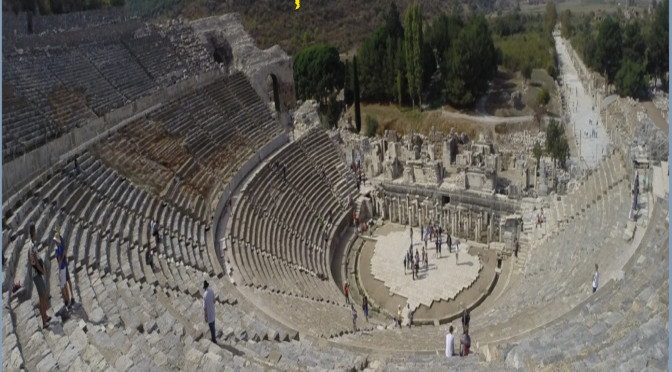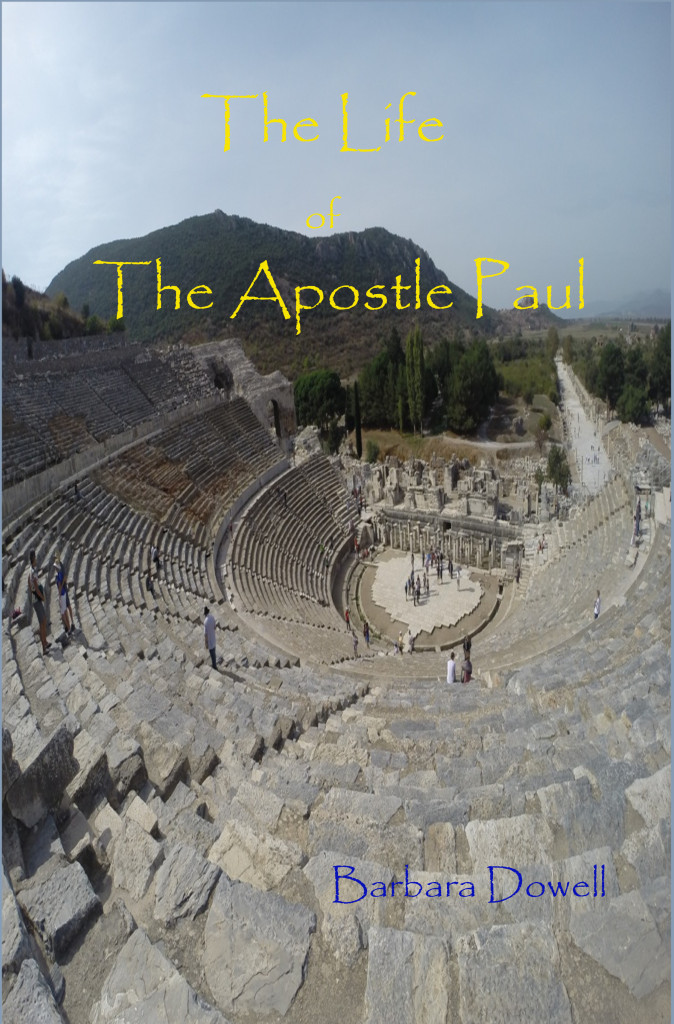The biblical record about Barnabas has been covered in the previous four posts. In today’s post, we present to you what tradition says happened to Barnabas after he and Paul separated.
Tradition
Tertullian, who lived from AD 155 to 240, stated that Barnabas was the author of the Epistle to the Hebrews.[1] Hippolytus of Rome (AD 170-235), as well as Clement of Alexandria, states that Barnabas was one of the seventy disciples[2] sent out by Jesus Christ in Luke 10:1-24.[3] The Clementine Recognitions (written approximately AD 200-400) identify Barnabas as Matthias, and even has him preaching about Jesus in Rome before the crucifixion.[4]
There is also a writing called “The Epistle of Barnabas,” which Clement of Alexandria (AD 150-215) believed was written by Barnabas. This writing was held in such high regard in some circles that it was regarded as part of the inspired word of God by Clement of Alexandria and Origen, both of whom quoted it as authoritative. It was also included in Codex Sinaiticus (a 4th-Century New Testament collection) and the “Jerusalem Codex” (11th-century), but the early church historian Eusebius objected to its inspiration. The Epistle refers to the destruction of the temple in Jerusalem as a past event, meaning it cannot be dated any earlier than AD 70.[5] Miracles in the church—including inspiration—ended by the time Jerusalem was destroyed.[6] Therefore, the “Epistle of Barnabas” cannot be inspired by God and deserves no place in the Bible. It is also doubtful that it was written by Barnabas at all.[7]
According to early church tradition, Barnabas was in Cyprus, teaching boldly in a synagogue when Jews from Syria and Salamis fell on him, dragged him out of the synagogue, tortured him, and then stoned him to death. After this, John Mark buried him and went to tell Paul and Peter.[8] This was said to take place in AD 61. Another writing, called the “Acts of Barnabas,” claims that his death came when a noose was placed around his neck and he was dragged by it until his tormentors set fire to him.[9]
The History of the Cyprus Church states that Barnabas was buried with a copy of Matthew’s gospel.[10]
About 400 years after the death of Barnabas, there was a writing circulating with the name “The Gospel of Barnabas,” which is only known only because it was condemned as heresy[11] (no copies of it are known to exist today). Barnabas’ name was later blasphemed by Muslims who produced a writing called “The Gospel of Barnabas” which said Jesus wasn’t the Son of God, but just a prophet who wasn’t really crucified, and mentioned Mohammad by name.[12]
-Bradley S. Cobb
[1] Conybeare and Howson argue for this interpretation as well.
[2] Hippolytus lists seventy men by name, claiming they are the seventy disciples sent by the Lord. However, his list includes at least one Gentile (Luke), as well as another man who was not converted to Christ until after Paul’s conversion (Philemon). As such, while the list proves to be interesting, it simply is not accurate.
[3] The seventy were “sent forth,” which is the verb form of “apostle.” If Barnabas were truly among that number, then that would add yet another way in which he was an apostle.
[4] The Clementine Recognitions is a writing which claims to be from Clement of Rome (died approximately AD 101), describing how Clement (who is also identified in the story as the cousin of Caesar) saved Barnabas from an angry mob, and how Barnabas later introduced him to Peter in Caesarea. It is an interesting story, but it contains several statements that contradict the biblical record, such as Zacchaeus being a disciple of Peter and Peter being required by James (brother of the Lord) to send transcripts of all of his sermons and teachings back to Jerusalem for James to review. Most scholars date it no earlier than AD 240, over a hundred years after Clement of Rome died.
[5] Ed Stevens, in his unpublished thesis, “Redating the Epistle of Barnabas,” argues that the destruction referenced in this epistle is the one accomplished by the Babylonians in 586 BC, and thus gives a pre-AD 70 date to this uninspired letter.
[6] For a more detailed explanation, along with the biblical proofs for this statement, see the appendix in this author’s book, The Holy Spirit in the Book of Acts.
[7] The general consensus of modern scholars and historians is that the “Epistle of Barnabas” was written—at the very earliest—near the end of the first century, at least 20 years after the New Testament was completed.
[8] Paul mentions Mark being with him in Colossians 4:10 and Philemon 24; Peter mentions Mark’s presence in 1 Peter 5:13.
[9] As one can see by these two contradictory reports of the death of Barnabas, just because something is “traditionally believed,” does not mean it is necessarily true. Another example is the death of Peter. Tradition holds that he was crucified upside-down, but the writing that records that tradition also says that a talking cross that was as tall as the clouds came out of Jesus’ tomb. It makes for a nice story, and there may be truth to the manner of Peter’s death, but it is impossible to state it with any certainty.
[10] Some modern guidebooks say that this copy of Matthew’s gospel was written in Barnabas’ own handwriting. They do not say, however, how that conclusion was reached. See “The Search for the Twelve Apostles” by William Steuart McBirnie, Ph.D., page 261.
[11] The Decretum Gelasianum lists this “Gospel of Barnabas” as apocryphal and condemns it.
[12] This work is often referenced by Muslims as evidence of their beliefs and teachings about Jesus. The only manuscripts known to exist are in Spanish and Italian, and neither one is older than the 1500s. In it, Barnabas is one of the twelve apostles, clearly contradicting the Scripture.


